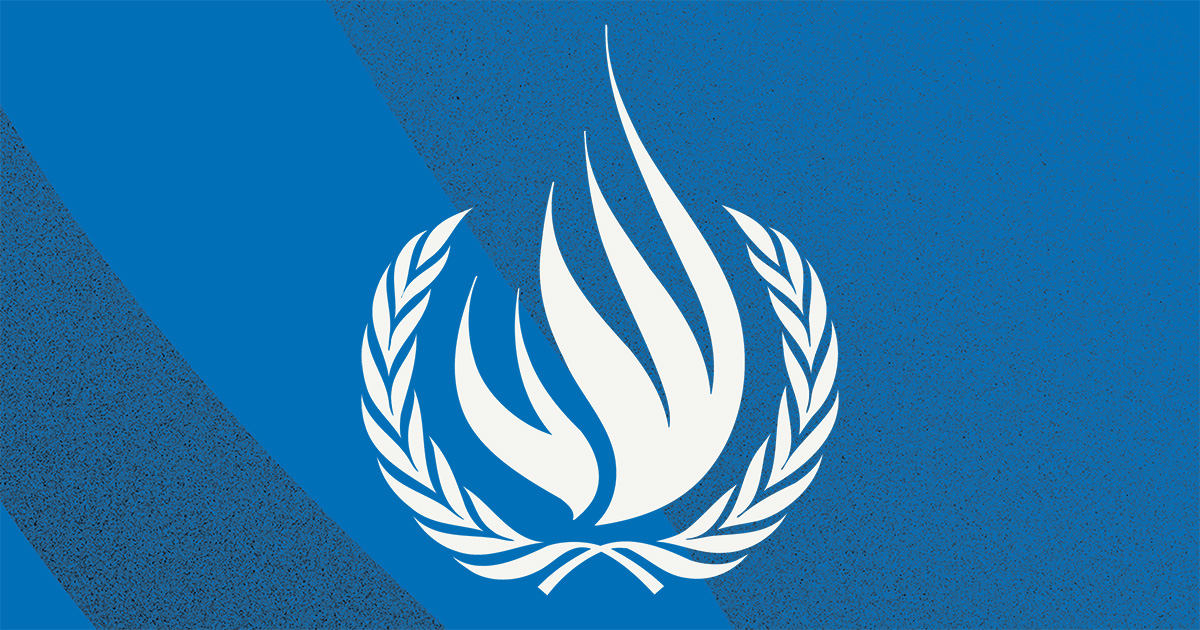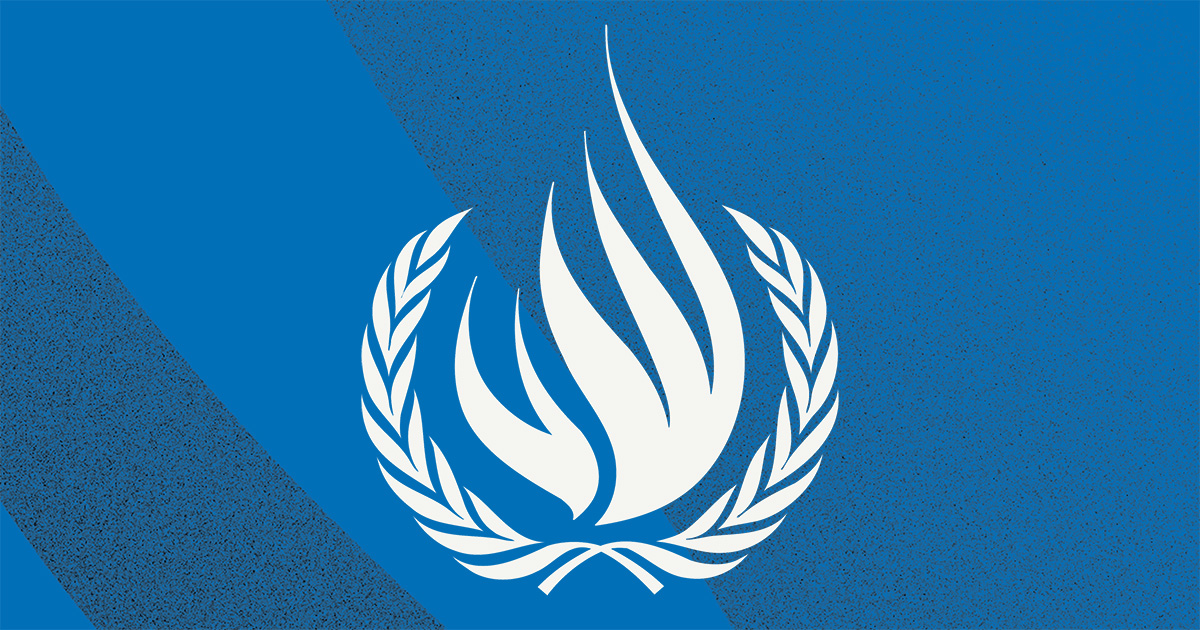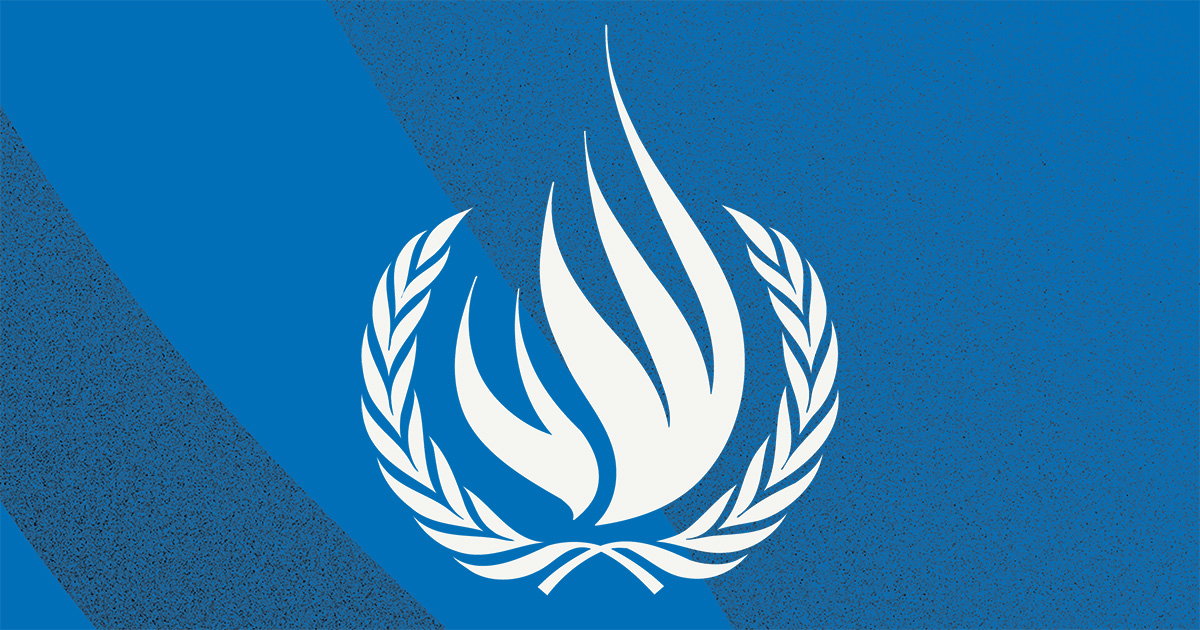
GENEVA (21 February 2024) – Israel must immediately implement a ceasefire and concrete humanitarian measures that prioritise the needs of Palestinian women and girls in accordance with the International Court of Justice’s ruling of 26 January 2024, UN experts* said today.
“At this stage of the conflict, there is an urgent and growing need to address the near total disruption of schooling, massive destruction of housing, lack of access to sexual and reproductive health care and supplies, and heightened risk of arbitrary detention and violence, including gender-based violence, faced by women and girls in Gaza and the West Bank,” the UN experts said.
The experts expressed alarm at the severely limited access to medical treatment and essential supplies in hospitals, and reports of pregnant mothers having caesarean sections and injured children undergoing amputations without anaesthesia.
“Given the critical humanitarian situation, all attacks and raids by Israeli forces on Gaza’s hospitals – less than a third of which are even partially operational – must stop immediately,” they said.
The experts called on Israel to adopt the following six gender-responsive measures as a matter of the highest priority in order to address the urgent needs and vulnerable conditions of women and girls in Gaza and the West Bank:
Implement an immediate ceasefire and take all possible measures to avoid civilian casualties and displacement from Gaza;
Establish a field hospital at the Rafah Crossing or offshore from Gaza, specifically to provide medical assistance for pregnancy and amputations, and protect existing hospitals;
Facilitate the delivery of food, drinking water, medicines, fuel and other supplies critical to the survival of women and girls, and open crossings for humanitarian aid and the movement of people, particularly the injured;
Prioritize adequate supplies of menstrual hygiene products for women and girls in Gaza, as well as sexual and reproductive health care and psychosocial support services;
Build additional shelters and schools in Gaza so that educational facilities are no longer used as shelters and girls can resume their education;
Provide safe spaces and reparations for women and girls who have survived or are at risk of gender-based violence in Gaza and the West Bank, and ensure accountability for those who perpetrate violence against them, including Israeli authorities and settlers.
The experts noted that the measures recommended represent practical steps that Israel can take to prevent and mitigate further harm to Palestinian women and children, as required by international human rights law and other international obligations.
“Implementing these measures would be a long overdue demonstration that Israel cares about the protection of civilians and respects their human rights,” they said.
ENDS
*The experts: Dorothy Estrada Tanck (Chair), Claudia Flores, Ivana Krstić, Haina Lu, and Laura Nyirinkindi, Working group on discrimination against women and girls; Francesca Albanese, Special Rapporteur on the situation of human rights in the Palestinian territories occupied since 1967; Tlaleng Mofokeng, Special Rapporteur on the right of everyone to the enjoyment of the highest attainable standard of physical and mental health; Ashwini K.P., Special Rapporteur on contemporary forms of racism, racial discrimination, xenophobia and related intolerance; Paula Gaviria Betancur, Special Rapporteur on the human rights of internally displaced persons; Siobhán Mullally, Special Rapporteur on trafficking in persons, especially women and children; Cecilia Bailliet, Independent Expert on human rights and international solidarity; Mama Fatima Singhateh, Special Rapporteur on the sale, sexual exploitation and sexual abuse of children; Michael Fakhri, Special Rapporteur on the right to food; Pedro Arrojo-Agudo, Special Rapporteur on the human rights to safe drinking water and sanitation; Dominique Day, Bina D’Costa and Catherine Namakula, Working Group of Experts on People of African Descent; Balakrishnan Rajagopal, Special Rapporteur on the right to adequate housing; Carlos Salazar Couto (Chair-Rapporteur), Sorcha MacLeod, Jovana Jezdimirovic Ranito, Chris M. A. Kwaja, Ravindran Daniel, Working Group on the use of mercenaries; Reem Alsalem, Special Rapporteur on violence against women and girls, its causes and consequences; Claudia Mahler, Independent Expert on the enjoyment of all human rights by older persons; Farida Shaheed, Special Rapporteur on the right to education; Alexandra Xanthaki, Special Rapporteur in the field of cultural rights; Surya Deva, Special Rapporteur on the right to development.
The experts are part of what is known as the Special Procedures of the Human Rights Council. Special Procedures, the largest body of independent experts in the UN human rights system, is the general name of the Council’s independent fact-finding and monitoring mechanisms. Special Procedures mandate-holders are independent human rights experts appointed by the Human Rights Council to address either specific country situations or thematic issues in all parts of the world. Special Procedures experts work on a voluntary basis; they are not UN staff and do not receive a salary for their work. They are independent of any government or organisation and serve in their individual capacity.
For additional information and media requests, please contact hrc-wg-discriminationwomen@un.org
For media enquiries regarding other UN independent experts, please contact Maya Derouaz (maya.derouaz@un.org) and Dharisha Indraguptha (dharisha.indraguptha@un.org)
Follow news related to the UN"s independent human rights experts on Twitter: @UN_SPExperts








